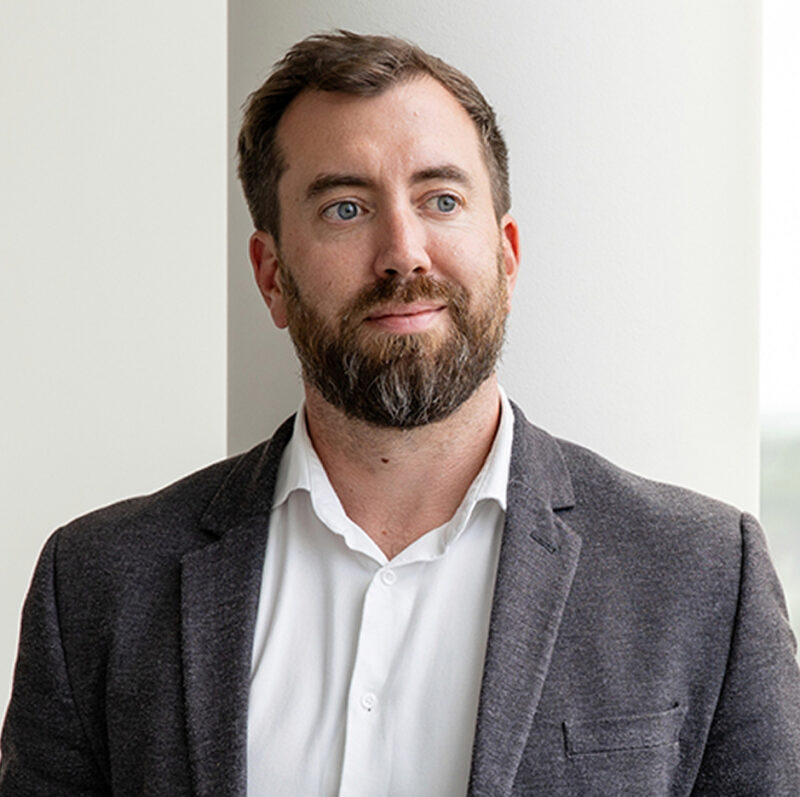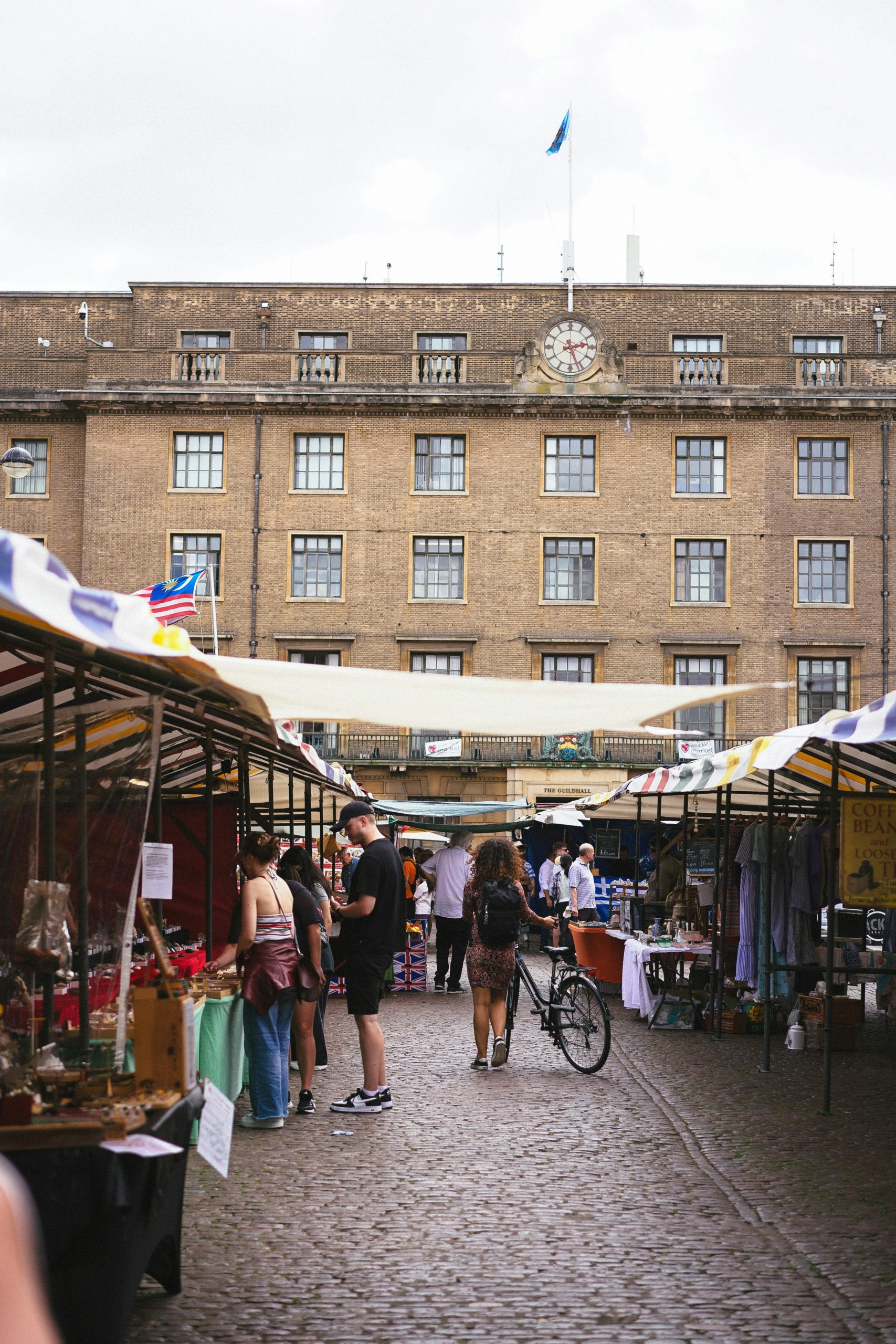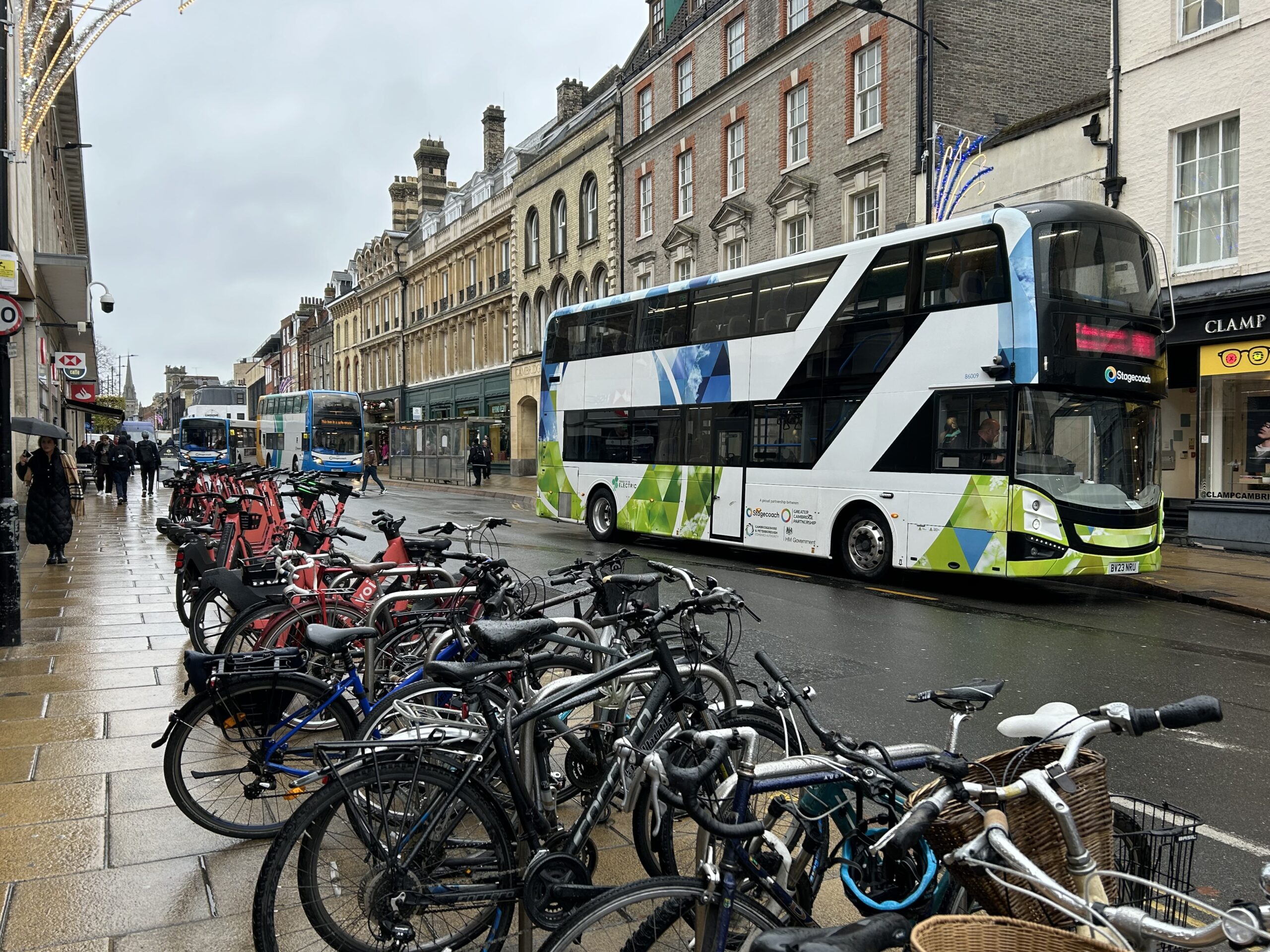UK economy at risk due to infrastructure gap in UK’s fastest growing city
02/04/2024
- Warning in letter to Chancellor and Shadow Chancellor
- New expert group leads campaign to find solutions to infrastructure challenge and unlock Cambridge’s full potential.
- Figures underline Cambridge’s position as UK’s fastest growing city
A group of renowned business leaders, academics and experts from Cambridge have written to the Chancellor and Shadow Chancellor warning that the UK economy will take a significant hit unless the widening infrastructure gap in the nation’s fastest growing city is addressed.
The warning comes as Cambridge Ahead reveals plans for a first-of-its-kind campaign to find solutions to the Cambridge infrastructure gap – and show how the city’s potential can be unlocked for the benefit of residents, other regions and the whole of the UK.
Cambridge entrepreneur and national policy advisor Dr David Cleevely CBE and renowned economist Dame Kate Barker will oversee the campaign which will be called: The Infrastructure Gap: Unlocking Cambridge’s full potential.
The team of experts also includes Director of the Global Sustainability Institute, Anglia Ruskin University, Aled Jones who will lead on energy and sustainability, and Dame Diane Coyle from the Bennett Institute for Public Policy who will lead on social infrastructure including public services.
They will oversee a series of events, reports and hearings in a bid to produce and provide analysis that deepens Government understanding of the case for Cambridge, and aids in developing plans to unlock Cambridge’s full potential.
Most mentioned city in the budget
The letter to the Chancellor and Shadow Chancellor Cambridge says that Cambridge is growing faster than any city in the UK and its importance to the UK economy was underlined when it was mentioned more times in the budget that any other city.
The letter includes new figures from the Centre for Business Research (CBR), at the University of Cambridge, underline the rapid growth:
- Over the last ten years, Greater Cambridge has seen 2.2% per annum growth in employment compared to Great Britain’s 1.4%.
- Across the Cambridge city region knowledge intensive sectors grew employment by 5.7% over the latest year of data (2021-22 to 2022-23), led by an 11.1% increase in life sciences.
- Turnover, for high-tech manufacturing saw growth of over 18.7% in the same period
Warning that growth could stall
The letter from the team of experts warns that new housing, water and transport are not keeping pace with growth and that “there are serious and urgent warning signs that this economy could stall”.
The letter says:
“If growth stalls, the impact will be felt not only by residents and businesses – but evidence shows growth in Cambridge is connected to growth in other regions and is also key to the growth of the economy as a whole. It’s vital that we address the infrastructure gap.”
(letter in full below)
Infrastructure gap campaign
The group is planning a series of events in the next six months, including an event on 23 April where it will launch the latest in its series of data-led insights into Cambridge, and a series of expert hearings on infrastructure making recommendations for priority solutions.
To coincide with the launch of the campaign Cambridge Ahead has revealed details of two important new upcoming reports.
- A data-led report to make the strategic case for investment in Cambridge by showing the city region’s ‘net contribution’ to UK PLC by using an analytical tool employed by Greater Manchester as part of the devolution negotiations.
- The group is also working on a report that will show that the current growth of Cambridge risks stalling – with an impact on other regions and the UK as a whole – unless we close the close the gap.
In addition to writing to the Chancellor and Shadow Chancellor, Cambridge Ahead will involve all its members, covering a workforce of over 40,000 – including the likes of Cambridge University, the Wellcome Sanger Institute, and Arm; local, regional and national leaders and any individual or organisation that has a stake in achieving Cambridge’s potential.
Dr David Cleevely CBE said:
“I know first-hand that Cambridge creates companies that scale to compete with the best tech and life sciences firms in the world.
“We’ve also created an ecosystem of investors and business support to generate more and more homegrown success stories.
“Our biggest threat to success now is infrastructure. Not only is economic output constrained by lack of infrastructure, but most importantly, the day-to-day quality of life of our residents is also impacted.”
Dame Kate Barker said:
“I’m honoured to have been asked to advise this critical piece of work. In 2018 I led an independent economic review of Cambridgeshire and Peterborough. At that time our Commission concluded that this region’s success is a project of national importance. In 2024 that message remains vital.
“The Cambridge city region is home to some of the most important companies and institutions in the country. Cambridge therefore has a prime role to play in the UK’s industrial future and international competitiveness.
“But that role is entirely contingent on the need to provide affordable and accessible housing, and wider infrastructure, to enable good growth. I look forward to working with a great team of experts to start to find the solutions to the infrastructure gap.”
Dan Thorp, CEO of Cambridge Ahead, said:
“We are delighted to have brought together such an experienced, knowledgeable and committed group of experts to lead our new campaign to find solutions to Cambridge’s infrastructure gap.
“Cambridge’s growth is an incredible story – as the latest data shows. But it’s a story that risks an unhappy ending.
“We are faced with a widening infrastructure – transport, utilities, health and housing are all struggling to keep pace. This infrastructure gap limits the city region’s economic potential, it also threatens the quality of life of its residents.
“The Government’s budget announcements were welcome recognition of the challenges, a crucial first step that we need to build on.
“Sustainable growth in Cambridge is not only good for residents and business, but it also benefits connected regions and the UK economy as a whole. That is why Cambridge Ahead is launching the new campaign: The Infrastructure Gap: Unlocking Cambridge’s full potential.
“We very much look forward to working with stakeholders, experts and policy-makers in the city region, across the country and nationally to find solutions to unlock Cambridge’s full potential.”
Ends
Note to editors
For more information or interviews contact Daniel Mazliah at iNHouse Communications on daniel@inhouse.london or 07745639073.
Letter to Chancellor is copied in full below.
Government vision for Cambridge
In July 2023 the Government outlined plans to develop Cambridge into ‘Europe’s science capital’. In December, the Secretary of State for Levelling Up, Housing and Communities announced an expansion of the Cambridge plan with more than 150,000 new homes around the city as part of wider economic development. This would be delivered through the creation of a statutory body. Alongside the March Budget the Secretary of State for Levelling Up, Housing and Communities published The Case for Cambridge.
About Cambridge Ahead:
Cambridge Ahead (CA) is a business, research, and academic membership group dedicated to the sustainable and inclusive growth of Cambridge and its region in the long term. Cambridge Ahead produces evidence and analysis relevant to the key issues facing Cambridge’s future and bring policymakers together to respond to this research. Our c. 50 members represent a workforce of over 40,000 in the Cambridge city region. Cambridge Ahead acts as a voice for the Cambridge economy both nationally and locally. Find out more at: www.cambridgeahead.co.uk
About the experts
Dr David Cleevely CBE
David Cleevely is an entrepreneur who has founded a series of companies including Abcam, Analysys and the award-winning restaurant Bocca di Lupo. He is Chairman of Chemify (a Glasgow University spin out founded with Professor Lee Cronin), Focal Point Positioning, and the Cambridge Science Centre. He was Chairman of the Raspberry Pi Foundation, Founding Director of the Centre for Science and Policy, University of Cambridge and co-founded Cambridge Network, Cambridge Wireless, Cambridge Angels and Cambridge Ahead.
He was Vice-Chair of the Cambridgeshire and Peterborough Independent Economic Review, Chair of the Cambridge Autonomous Metro (CAM) Technical Advisory Committee and Chair of the enquiry into policy after Covid, the Cambridge Ahead ‘New Era for the Cambridge Economy’ (NECE) Steering Committee.
He also chairs the Royal Academy of Engineering Policy Fellowships Working Group. For 8 years until March 2009 he was a member of the Ofcom Spectrum Advisory Board and from 2001 to 2008 he was a member of the Ministry of Defence DES-ISS (DCSA) Board. He was awarded an honorary doctorate in Education by Bath University in 2022 and an honorary doctorate in Technology by Anglia Ruskin University in July 2023.
Dame Kate Barker
Dame Kate Barker now holds a number of roles, mainly in financial services. She is Chairman of Trustees for the British Coal Staff Superannuation Scheme, and Chair-Elect of the Universities Superannuation Scheme. She is an NED at Man Group plc, and (until July 2020) at Taylor Wimpey plc.She also chairs the Jersey Fiscal Policy Panel. Kate was an external member of the Bank of England’s Monetary Policy Committee for three terms between 2001-2010. During that time, Kate was commissioned by the government to conduct a major independent policy review of UK Housing Supply, and subsequently a review of Land Use Planning.
Kate was Chief Economic Adviser at the CBI between 1994-2001. From 2010 to 2017 she was an NED of the Yorkshire Building Society, and she was also a Commissioner of the National Infrastructure Commission between 2017-2020.
In 2014 Kate was made a Dame for services to the economy.
Professor Aled Jones
Aled is the Inaugural Director of the Global Sustainability Institute (GSI) and helps lead the University’s efforts in sustainability including student experience and research. The GSI is a high-profile research institute within ARU, and has grown rapidly since its formation in early 2011. Aled was chair of a working group under the Capital Markets Climate Initiative (CMCI) on behalf of the UK Minister for Climate Change in the Department for Energy and Climate Change and a member of the UK-US Taskforce on Extreme Weather and Global Food Resilience for the UK Foreign & Commonwealth Office. He is a member of the Expert Panel for the HRH Prince of Wales’ Accounting for Sustainability (A4S) and a member of the Science Advisory Group for the UK Global Food Security programme.
Aled sits on the Resource & Environment Research Working Group of the Institute and Faculty of Actuaries. He is a member of the Advisory Group for the Keeling Curve Prize in California. He was an invited author on Chapter 7 (international dimensions of risk) for the UK Government’s 3rd Climate Change Risk Assessment (CCRA3). In 2015 Aled won the Highly Commended for Sustainability Professional of the Year as part of the Green Gown Awards and was a finalist for the Finance For The Future Awards 2018. In 2022 he won one of the Frank Reddington essay prizes of the Institute of Actuaries.
Professor Dame Diane Coyle
Professor Dame Diane Coyle is the Bennett Professor of Public Policy at the University of Cambridge. Diane co-directs the Bennett Institute where she heads research under the themes of progress and productivity. Her latest book is ‘Cogs and Monsters: What Economics Is, and What It Should Be‘ on how economics needs to change to keep pace with the twenty-first century and the digital economy.
Diane is also a Director of the Productivity Institute, a Fellow of the Office for National Statistics, an expert adviser to the National Infrastructure Commission, and Senior Independent Member of the ESRC Council. She has served in public service roles including as Vice Chair of the BBC Trust, member of the Competition Commission, of the Migration Advisory Committee and of the Natural Capital Committee. Diane was Professor of Economics at the University of Manchester until March 2018 and was awarded a DBE in the King’s Birthday Honours List 2023 for her invaluable contributions to economic policy and practice, as well as her unwavering commitment to public service.
Letter
Dear Chancellor and Secretary of State for Levelling Up, Housing and Communities,
We are writing as a group of experts, businesses and local leaders from the Cambridge city region to invite you to meet with us as part of a visit to Cambridge in the coming months to see first-hand the city’s exceptional growth story, the infrastructure challenges threatening that growth, the impacts these have on local quality of life, and the work being done to propose solutions.
It is striking that Cambridge was mentioned more times in your budget than any other city – underlining Cambridge’s importance to the UK economy. Indeed, the Government published a ‘Case for Cambridge’. This, of course, follows announcement of your plans to develop Cambridge into ‘Europe’s science capital’ and the significant activity underway through the Cambridge 2040 project you have established.
Cambridge is the fastest growing city economy in the UK. Our latest evidence – from the Centre for Business Research (CBR), at the University of Cambridge, shows that over the last 10 years, employment in Greater Cambridge has increased by 2.2% per annum in the region compared to Great Britain’s 1.4%. Technology and life sciences and healthcare are the driving this growth, as well as high-tech manufacturing, which in the last year has seen growth in turnover of over 18.7%.
But there are serious and urgent warning signs that this growth could stall. The infrastructure gap faced by Cambridge limits the city region’s economic potential, it also threatens the quality of life of its residents.
In the last 10 years, house prices in Cambridge have increased by 78%, but pay by only 23%. Only Central London is less affordable than Cambridge in terms of buying a home. At the same time Cambridge is struggling to deliver existing plans for 50,000 houses by 2040 because of a chronic lack of water supply. Employers across business, research, and academia tell us that transport issues are affecting recruitment and retention.
If growth stalls, the impact will be felt not only by residents and businesses locally – but evidence shows growth in Cambridge is connected to growth in other regions and is also key to the growth of the economy as a whole. So, the UK economy could be seriously impacted too.
It’s vital that we address the infrastructure gap. Announcements in the budget and since to help address key water, transport, and health aspects of Cambridge’s
infrastructure gap were welcome recognition of the challenges and a first step which must be built upon.
This is the moment to re-invigorate the collaboration between Government and local stakeholders. That is why we are launching a campaign called The Infrastructure Gap: Unlocking Cambridge’s full potential.
Cambridge Ahead, which is made up of major businesses and institutions in Cambridge, has brought together a team of experts to explore solutions to the infrastructure gap. Cambridge entrepreneur and national policy advisor Dr David Cleevely CBE and renowned economist Dame Kate Barker will oversee the campaign.
Director of the Global Sustainability Institute, Anglia Ruskin University, Aled Jones will lead on energy and sustainability. Diane Coyle from the Bennett Institute will lead on social infrastructure including public services.
The team will oversee a series of events, reports and hearings in a bid to produce and provide analysis that deepens our understanding of the case for Cambridge, and aids in developing plans to unlock Cambridge’s full potential.
Cambridge Ahead will also involve its members – including the University of Cambridge, the Wellcome Sanger Institute, and Arm as well as local, regional and national leaders and any individual or organisation with a stake in achieving Cambridge’s potential.
We would very much like to brief your officials as part of your ongoing focus on Cambridge, and would ask you to consider meeting us in the city as a priority – to see and hear about both the potential for and risk to growth.
Your sincerely,
Dan Thorp, CEO Cambridge Ahead
Dame Kate Barker
Dr David Cleevely CBE





